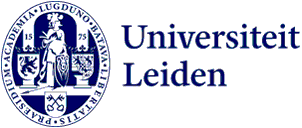
Juan Masullo receives APSA Alexander George Best Article Award
Assistant Professor Juan Masullo of the Institute of Political Science has been awarded the 2025 Alexander George Best Article Award for his work on interviews and process tracing.
International recognition for methodological research
Juan Masullo, Assistant Professor at the Institute of Political Science at Leiden University, has received the 2025 Alexander George Best Article Award from the Qualitative and Multi-Methods Research (QMMR) section of the American Political Science Association (APSA). The winning article, Aligning Interviewing with Process Tracing, was published in 2024 in Sociological Methods and Research and co-authored with Ezequiel González Ocantos (University of Oxford). The award was officially presented at APSA’s annual meeting in Vancouver in September 2025.
Jury’s assessment
The jury praised the article as “systematic in considering the various strategies for designing, sampling, and sequencing interviews to yield insights for process tracing” and as “a treasure trove of methodological insights and practical guidance for researchers using these tools and seeking to combine them.” According to the jury, the article contributes to “the rigorous application and systematic improvement of qualitative methods beyond their general defence.”

From an idea to an award-winning article
Reflecting on the project, Masullo explains: “Putting this article together took a long time. It all began with a conversation over tea at Nuffield College with Ezequiel back in 2018. We had both done extensive fieldwork, including hundreds of interviews, and were trying to put all this material to work for process tracing. Yet there were no clear guidelines out there. We thought we could draw on our experiences to offer some practical advice for others who wanted to use interviews in process tracing.”
A challenging publication process
Although the road to publication was challenging, he stresses that these difficulties ultimately strengthened the paper: “The publication process was—as it often is—a bumpy road: some rejections, followed by tough rounds of revisions. At one point, we even doubted whether we would make it. But each challenge ultimately made the paper stronger, and the lessons we learned are now feeding into other projects we are working on. It’s hard to imagine winning this award without going through that process. We are very grateful to APSA/QMMR for this recognition, and we hope this paper will be helpful for our community!”
